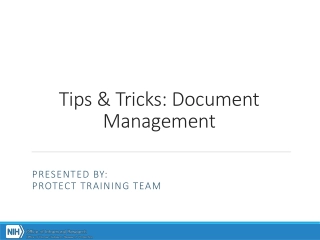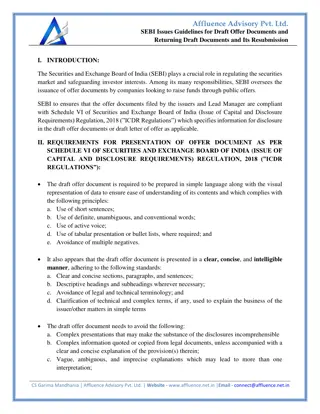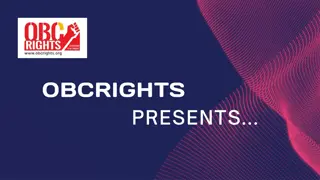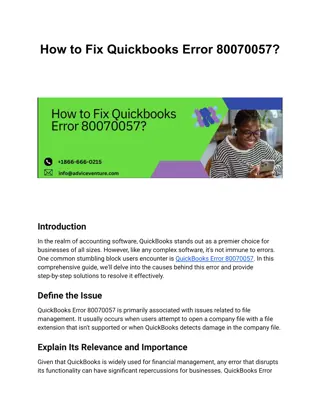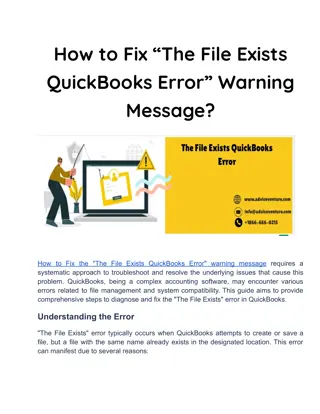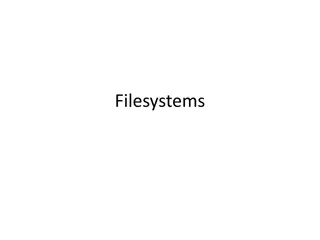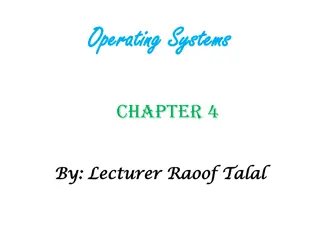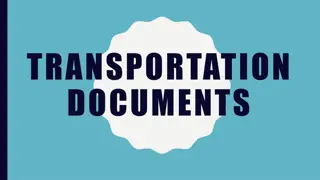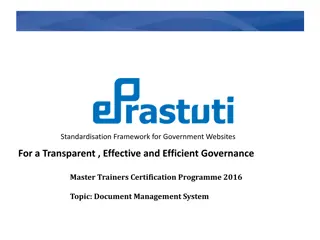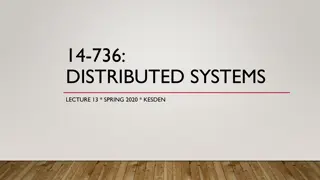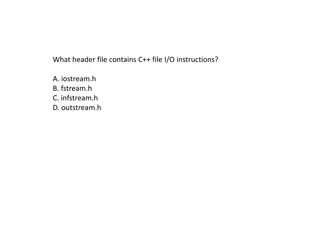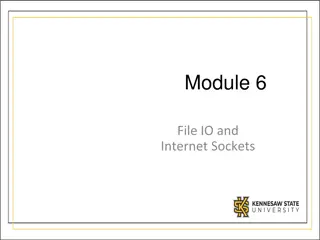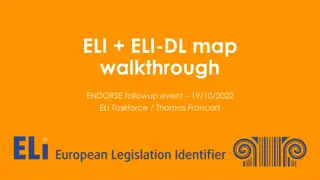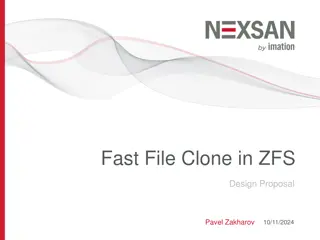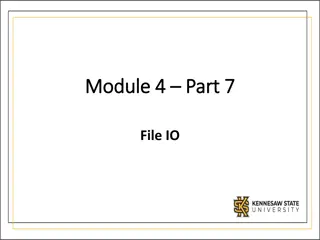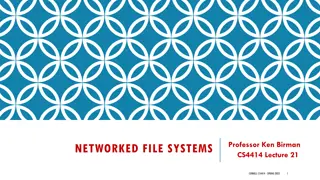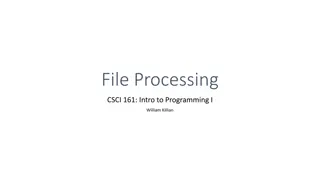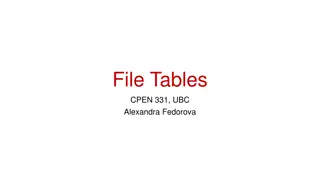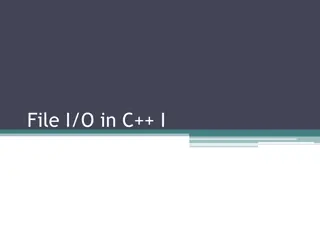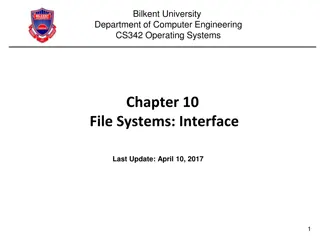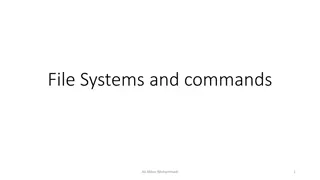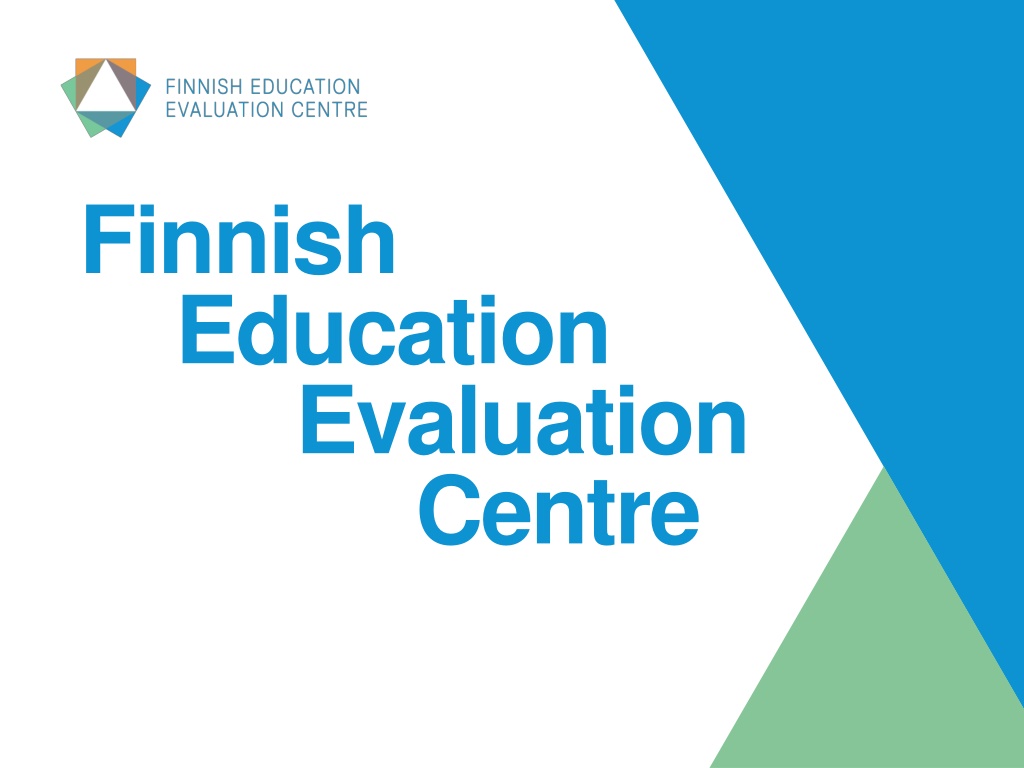
Finnish Education Evaluation Centre Overview
Explore the Finnish Education Evaluation Centre (FINEEC) responsible for evaluating all levels of education in Finland since 2014. From early childhood to higher education, FINEEC conducts evaluations, supports education providers, and follows independent operating principles. Discover the tasks and structure of FINEEC as an expert organization in the Finnish education system.
Download Presentation

Please find below an Image/Link to download the presentation.
The content on the website is provided AS IS for your information and personal use only. It may not be sold, licensed, or shared on other websites without obtaining consent from the author. If you encounter any issues during the download, it is possible that the publisher has removed the file from their server.
You are allowed to download the files provided on this website for personal or commercial use, subject to the condition that they are used lawfully. All files are the property of their respective owners.
The content on the website is provided AS IS for your information and personal use only. It may not be sold, licensed, or shared on other websites without obtaining consent from the author.
E N D
Presentation Transcript
Finnish Education Evaluation Centre
FINEEC Independent expert organisation 1st of May 2014 Responsible for external evaluation at all levels of education in Finland Finnish higher evaluation council over 20 years
From early childhood to higher education Early childhood and pre-primary education Basic education Upper secondary Vocational education and training Basic education in arts Liberal adult education Adult education Higher education
Finnish education system Licentiate & PhD Master s Master s Work experience Bachelor s Bachelor s Universities of Applied Sciences Universities Specialist vocational qualification General upper secondary education Work experience Vocational upper secondary education and training Further vocational qualification 10th Basic education 9 years Age 7 - 15 Work experience Preprimary education Early childhood education and care Age 6 Age 0 - 6
FINEEC Evaluation Council Director HE Evaluation Committee Management team Vocational education and training Higher education General education Evaluations Support to education providers and HEIs Development of methodology Common services
Operating in Helsinki and Jyv skyl Image: Gustav Welin, Museum of Finnish Architecture Personnel: approximately 50 Image: University of Jyv skyl
Operating principles Decision-making is independent of external influence Follows the principle of enhancement-led evaluation Actively disseminates the results of evaluations
The tasks of FINEEC To evaluate activities of education providers and higher education institutions To undertake evaluations of learning outcomes To audit quality systems To conduct thematic and system evaluations as well as evaluations of educational fields To support education providers and higher education institutions To develop the evaluation of education
Evaluation Council 13 members Appointed by the Government Four-year terms (current: 2014-2018) Supervises and develops FINEEC s activities Participates in strategic planning Prepares statements on long-term issues Prepares the National Plan for Education Evaluation Approves evaluation project plans
Higher Education Evaluation Committee 9 members (of whom 3 are also members of the Evaluation Council) Four-year terms (current: 2014-2018) Appointed by the Ministry of Education and Culture Makes decisions on: Evaluation project plans The composition of planning and evaluation teams Approval of the final results
FINEECsstrategy: Foresightand effective evaluation2020
The strategic goals of FINEEC Impact Efficiency Competence of personnel Development Reputation Accuracy
Strategic goals Impact The evidence-based evaluation information we produce is utilised in decision-making and development at different levels of the educational system. Based on the evaluation information, improvements are made to learners learning path. evaluation targets. We succeed in selecting the Our evaluation processes are streamlined, and the operations are profitable. We are a well-known and respected evaluation organisation both nationally and internationally. Our personnel is competent and its well-being is a priority. We maintain a positive atmosphere and encourage each other. We act as the centre of expertise for evaluation. We support education providers in matters pertaining to evaluation and quality management. We actively spread information regarding good practices as well as offer new types of forums for development.. Development
Service promises Reliability Equality Transparency Reform We base our evaluation activities on objectively collected data. We treat education providers equally in our evaluation activities. We act openly and make our operating principles and practices transparent. We reform and inspire our partners to reform.
TheNational Plan for EducationEvaluation 2016-2019
The Evaluation Plan 2016-2019 Formulated by the Evaluation Council FINEEC heard its key stakeholders in the process of preparing the plan Approved by the Ministry of Education and Culture in March 2016
Strategic focus areas of evaluation activities Foresight and effective evaluation
Evaluations of early childhood and pre-primaryeducation 2016-2019 The implementation and process of early childhood education Supporting early childhood education providers in quality management and the development of an evaluation model
Evaluations of basic education and upper secondary education Assessment of learning outcomes Mathematics, mother tongue (Finnish and Swedish) periodically Sample-based assessments No ranking lists Control concerning equal educational opportunities (gender, place of residence, home background) Thematic and system evaluations
Examples of evaluations of basic and upper secondary education 2016-2019: Assessments of learning outcomes Finnish as a second language Sami language Finnish sign language Romany language Longitudinal assessment in mathematics Bilingualism and multilingualism in Swedish- speaking schools
Examples of evaluations of basic and upper secondary education 2016-2019: Thematic and system evaluations Self-evaluation and quality management procedures of basic education and general upper secondary education providers Pupil assessment in basic education and general upper secondary education Evaluation of the implementation of the national core curriculum for pre-primary and basic education
Evaluations of vocational education and training 2016-2019 Assessments of learning outcomes (e.g.): Vehicle technology Information technology Music Textiles and clothing Youth and leisure instruction Processing industry Audio-visual communication
Evaluations of vocational education and training 2016-2019 Meta-evaluation of the assessment of learning outcomes and developing the evaluation system Evaluation of the reform of the vocational qualification requirements Supporting education providers in quality management and evaluation External evaluation of quality systems
Evaluations of higher education 2016-2019 Audits of quality systems Universities and universities of applied sciences Engineering programme accreditations EUR-ACE Thematic evaluations e.g. maritime education, teacher education qualifying to teach Swedish as the second national language
Cross-sectoral and thematic evaluations 2016-2019 Examples: The impact of national budget cuts on educational and cultural rights (early childhood secondary education + art and adult education) Peaceful and safe learning environments in schools and educational institutions (early childhood secondary education) Integration of immigrants to the educational system (early childhood adult education)
Cross-sectoral and thematic evaluations 2016-2019 Examples (continued): - Students transitions and study paths at educational transition phases (primary adult education) - Entrepreneurship and innovative capacity (vocational higher education) - Changes in the role of teachers; an evaluation of teacher education and continuing education (early childhood higher education)
International activities ENQA European Association for Quality Assurance in Higher Education (FINEEC s external review in 2016) EQAR European Quality Assurance Register for Higher Education NOQA, INQAAHE International networks for external quality assurance agencies EUR-ACE European Accreditation of Engineering Programmes Quality Audit Network Twinning projects (higher education) in Armenia and Azerbaijan Nordic Council of Ministers (Conference on June 14, 2016!) Nordiska evalueringsn tverket Nordiska n tverket f r prov och bed mning PISA, Pirls, TIMMS etc.

